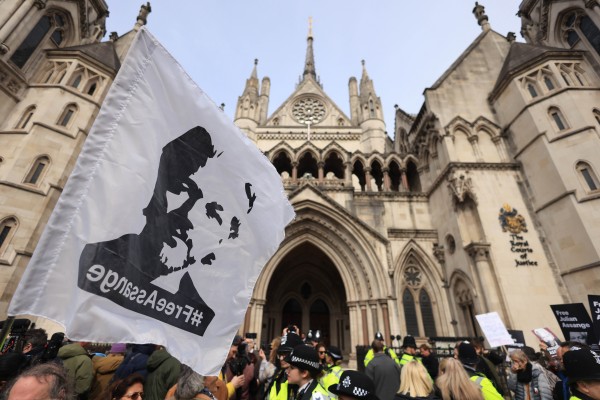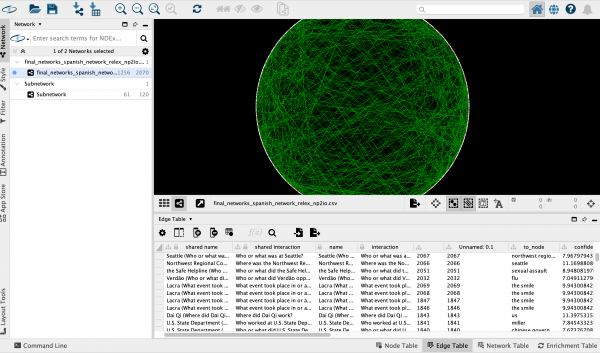The International Press Institute (IPI) today named two-time Pulitzer Prize winning American author and foreign affairs columnist David Rohde as its 63rd World Press Freedom Hero.
The Vienna-based group will formally present the award – which recognizes individuals who have made a significant contribution to defending and promoting press freedom, especially, but not only, if it involved acts of resistance or bravery under harsh conditions – during a special ceremony at its 2012 World Congress, set for 23-26 June in Port of Spain, Trinidad and Tobago.
Rohde, 44, is a Reuters columnist who received his first Pulitzer Prize in 1996 for reports in the Christian Science Monitor exposing the massacre of thousands of Bosnian Muslims in Srebrenica. Bosnian Serb police arrested Rohde in 1995 at the site of a mass grave he had discovered, detained him for 10 days – initially in secret – and threatened him with espionage charges.
He was also part of a New York Times team that was awarded a Pulitzer Prize in April 2009, the Pulitzer committee said, for the newspaper’s “masterful, groundbreaking coverage of America’s deepening military and political challenges in Afghanistan and Pakistan”. The committee noted that Rohde and his colleagues frequently reported “under perilous conditions”, a statement given further weight when it was revealed months later that Rohde at the time of the award was again being held in captivity.
In November 2008, members of the Taliban kidnapped Rohde and two Afghan colleagues who were conducting research in Afghanistan for a book on the history of American involvement in the country. News of Rohde and one colleagues’ escape after more than seven months in captivity – the third man fled and returned home safely after he was abandoned by his guards five weeks later – led to a debate over the role of the New York Times and other media organisations in suppressing news of Rohde’s detention while it remained ongoing.
IPI Executive Director Alison Bethel McKenzie said: “We are delighted to announce David Rohde as our 2012 World Press Freedom Hero. In his career as a journalist, he has gone beyond the borders of his own country to bring light to some of the most important issues of our day. His work shows the broad reach and impact of good journalism, and is a shining example of what journalists can accomplish, even when working under dangerous and trying circumstances.”
Rohde told IPI: “This is a tremendous honor. IPI fiercely defends journalistic freedom worldwide. I’m lucky and honored to be recognized by such an extraordinary group.”
A native of New England, Rohde majored in history at Brown University and he is married to Kristin Mulvihill, a former photography director for Cosmopolitan magazine. The pair wrote the book “A Rope and a Prayer: A Kidnapping from Two Sides” which describes, in alternating chapters, Rohde’s captivity and the efforts by Mulvihill – who married Rohde two months before he was kidnapped – to secure his release.
Rohde began his career in 1990 as a production secretary for ABC News’ World News Tonight and later became a production associate for the network’s Turning Point. He worked as a freelance reporter in the Baltic republics, Cuba and Syria before serving as a county and municipal reporter for the Philadelphia Inquirer, and he later covered national news from Boston, New York City and Washington, D.C. for the Christian Science Monitor.
He went to Croatia as the newspaper’s Eastern Europe correspondent in 1994 and found signs in Bosnian Serb-held territory suggesting a massacre had taken place. He was arrested when he returned to the area to follow up. His editor at the Christian Science Monitor, Faye Bowers, in 2009 told the New York Times: “I got a long e-mail saying that he couldn’t live with himself if the massacre went unheeded so he was going back for more evidence.”
Rohde was released following a diplomatic push by the U.S. State Department and in 1996 he received both the Polk Award for foreign reporting and his first Pulitzer Prize. He later authored the widely-acclaimed account of the Srebrenica massacre, “Endgame: The Betrayal and Fall of Srebrenica, Europe’s Worst Massacre Since World War II”.
In 1996 he joined the New York Times, where he worked until he joined Thomson Reuters last year. He reported from Afghanistan for the Times in the three months following the attacks of 11 September 2001, and from 2002 to 2005 he served as co-chief of the newspapers’ South Asia bureau. He later worked as a member of the Times’ investigation department in New York and in 2010 he won the Michael Kelly Award, given annually for “The Fearless Pursuit and Expression of Truth”.
In a report that followed Rohde’s escape from captivity in 2009, the Times said he was “known by colleagues as an intrepid yet unassuming reporter who conducts himself modestly around the office, predictably attired in neatly ironed Oxford shirts….” The newspaper added: “Affable and soft-spoken, he is not one to regale colleagues with war stories, instead saving his storytelling for articles.”
IPI has named 62 other individuals World Press Freedom Heroes since the group was founded in 1950. Rohde is the third American to receive the award. Wall Street Journal reporter Daniel Pearl, who was brutally murdered in Pakistan in 2002 while on the trail of the so-called shoe bomber Richard Reid, was posthumously named a World Press Freedom Hero in 2011. The late Katharine Graham, the former publisher of The Washington Post who backed her staff in exposing the wrongdoings of the Nixon administration, received the award in 2000.


